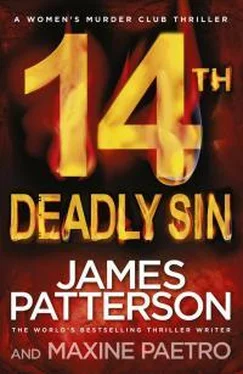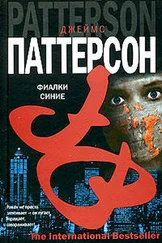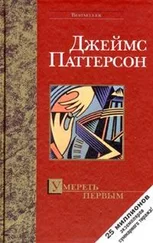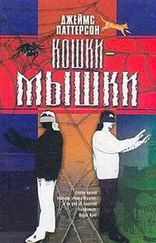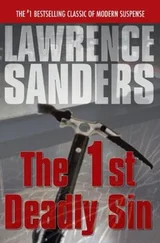“We have to turn over every stone,” said Brady. “And the dirt under every stone.”
I said, “Assuming these are the same Windbreaker shooters, they’re slick, Brady.”
I went on to say that in the morning we’d go through the cop records again and look for motive: cops who were ambitious but undistinguished, those who were disgruntled, or had been suspended, or had retired early. I said to Brady, “But even saying they’re actually cops, they may not be from our station, or even our city.”
Brady nodded.
Then he said, “I’m assigning additional people to this case.”
I had been focusing on the work ahead, so Brady’s comment totally snapped my head around.
I said, “Another team?”
“Inspectors Swanson and Vasquez are now on loan to me from Robbery, along with four guys who are working for them.”
Ted Swanson and Oswaldo Vasquez were reputed to be great cops. But assigning them and their teams to this case, rather than other detectives from Homicide, only tangled the chain of command. I wasn’t pleased. Brady read my expression.
He said, “Here’s what we’ve got: three big-money heists, two DBs in six days, no evidence, media attention of the worst kind, and pressure from upstairs.
“So don’t get territorial, Boxer. Swanson knows robbery homicide cold. Vasquez grew up on the streets. Whether the doers are cops or pretend cops, it doesn’t matter. If we don’t get those mopes into lockup, all of our jobs will be compromised. Understand?”
I admire Brady. Sometimes I even like him. But he was ticking me off. Swanson and Vasquez had nothing on Conklin and me.
“Get in touch with Swanson and Vasquez,” he went on. “I want all of you canvassing around that shop until you get somewhere or someone. This spree has got to stop and I don’t care who stops it.”
“We’re on it, boss,” Conklin said.
“Read you loud and clear, Lieutenant,” I said through clenched teeth. I felt a sleepless night coming on.
CHAPTER 24
THE SQUARE BRICK apartment house was at the dead end of a street lined with other plain three-story buildings on Taylor Street at Eddy: the worst part of the Tenderloin.
Yuki pushed in the outer door and pressed the intercom button marked KORDELL.
The buzzer blared and Yuki climbed three stinking flights of graffiti-tagged stairs and knocked on the door at the end of the hallway. A woman cracked the door open.
“I’m Yuki Castellano. Mr. Jordan from the Defense League sent me. Did you get a call?”
“Yes, yes, please come inside.”
Mrs. Kordell was African-American, very thin, about forty; she wore a red bandana over her hair and had yellow rubber gloves peeking out of the pockets of her cargo pants.
Yuki walked behind her down a long, narrow hallway and entered a living room crowded with what looked to be generations of furniture. An elderly gentleman sat in a lounge chair, his hand on a carriage that he was rocking gently.
Mrs. Kordell introduced Aaron-Rey’s grandfather as Neil Kordell and said her husband was at work.
“My husband is a total wreck,” she said. “He doesn’t sleep. He barely speaks. Aaron-Rey’s death has destroyed him.”
Yuki took a seat on a worn brown sofa, and Mrs. Kordell sat in a matching armchair. On the table between them were pictures of a smiling Aaron-Rey Kordell.
“Why don’t you tell me about your son?” Yuki said.
The boy’s mother picked up one of the photos and held it as she talked. “Aaron-Rey was fifteen. He was so big, he looked older than that—but he had the mind of a child.”
Yuki nodded. Zac had told her that Aaron-Rey was mentally handicapped but had never been in any kind of trouble before his single, fatal incarceration.
“He went to school every day, or so we thought,” said Aaron’s mother. “I only found out later that he hung around bad places.”
“After the shooting at the crack house,” Yuki said.
Mrs. Kordell nodded, and then her father-in-law told the story.
“What happened is that Aaron-Rey saw that these three dealers got shot and he ran out onto the street. The cops came after him and arrested him for killing those men. It was a joke . Aaron-Rey had the mind of a five-year-old. He didn’t even know how to shoot a gun.”
Mr. Kordell seemed to realize that he was rocking the baby too hard, said into the carriage, “Sorry, sweetheart,” and clasped his hands in his lap. He was agitated and clearly grieving for his grandson.
Yuki said to the elderly man, “As I understand it, the police found the gun on Aaron-Rey’s person.”
“Yes, that’s true. He picked up the gun. He didn’t think more than Oooh. A gun. And the police took him in and they questioned him for hours and didn’t call us .”
Mrs. Kordell picked up the story.
“If Aaron-Rey hadn’t been wrongly arrested, if the police hadn’t played him by saying how great he was for killing those drug dealers, my son wouldn’t have waived his rights and he wouldn’t have confessed. And he wouldn’t have been killed in jail while waiting for trial . My son would still be alive.”
Yuki felt the sharp pain of the people who had loved Aaron-Rey, and she could see that now that she was with the Defense League, terrible stories like this one would be her life.
Mrs. Kordell was saying, “The police should pay for what they did, right, Ms. Castellano? They should pay so that they don’t do this to anyone else’s child.”
Yuki said, “I agree. We’ve already filed the case against the City and the SFPD. It’s going to be difficult, Mrs. Kordell. The City is going to defend itself. You may have to testify. Tough questions are going to be asked, and the City’s lawyers are going to put Aaron-Rey in a bad light, if they can.”
“We’re all in,” said Mrs. Kordell.
“So are we,” said Yuki.
Actually, joining the Defense League seemed like a rash and very crazy idea. Was she even remotely cut out for this?
Yuki embraced the Kordells and said good-bye.
She hoped to hell she’d made the right decision.
Because when Parisi and his expensive law firm hired by the City were through chewing her up, she might never want to practice law again.
CHAPTER 25
AFTER LEAVING THE Kordells, Yuki drove four blocks and parked her car directly across the street from the crack house where three months before, Aaron-Rey’s life had taken a very bad turn at Turk and Dodge Place. As Aaron-Rey’s mother had said, the Tenderloin was a bad place to raise children. No kidding. It was the worst.
The impoverished district was an underworld of savagery, mayhem, and despair, populated with aggressive drunks and crackheads, runaways, derelicts, streetwalkers, and violent thieves. The best you could say of people who survived on these streets was that they were pitiable; most of them were doomed.
Yuki knew better than to get out of the car.
She was here to see the scene of Aaron-Rey’s death, to get the picture in her mind so that she could make a moving and watertight narrative for a jury.
She stared ahead at the peeling, sagging wood-frame building with a Chinese restaurant on the ground floor. The abandoned second floor, according to Yuki’s information, was a flophouse for junkies. The third floor was the trading floor, where wads of folding money and small packets of powder changed hands.
She saw the scarred metal door that opened from the interior of the house and emptied out to the street. It was clear from the numbers of men and boys who looked both ways before going through that door that the crack house was doing a brisk business.
Yuki imagined Aaron-Rey Kordell hanging out at this place because it was cool, then being shocked and confused when the shooting went down. She saw him picking up the gun—a shiny, valuable object—and running.
Читать дальше
